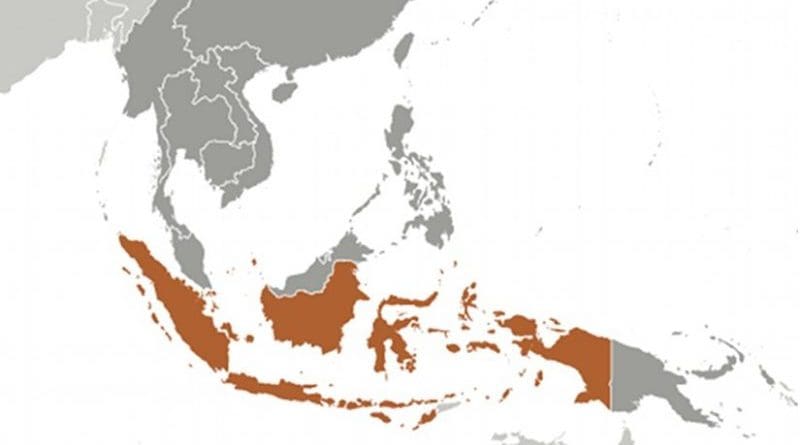Terror Never Dies: Remnants Of Islamist Radicalism In Indonesia – Analysis
Over the past one month, several incidents in Indonesia have come as reminders to the authorities regarding persistent efforts by the remnants of the radical Islamist terror to stage a come back. After inflicting a series of setbacks on the radicals, authorities in Indonesia are largely seen to have underplayed the capacities of the Islamists. But the opposite could be true. Terrorists are possibly taking advantage of such an attitude and are posing a real threat to this archipelagic nation and its Southeast Asian neighbors.
Experts are divided over the ability of the terror outfits, Jemaah Islamiyah (JI) and its splinter Jamaah Anshorut Tauhid (JAT) to make a come back. Although many dismiss these outfits as dead and gone, especially after the arrest of its leaders and busting of its networks, others maintain that the remnants of the outfit spread across several islands of the country remain capable of striking back. In this country of 200 million Muslims, most are moderates and radical Islamists represent only a fringe section of the society. But incidents like the 2002 bombings in Bali that killed 202 people are reminders of the capacities of the Islamists, who have worked in close coordination with the Al Qaeda.
Although a recent US study provided a clean chit to the Madrassas in Pakistan, many Pesantrens (Islamic boarding schools) in Indonesia are known to have been used by the Islamists to recruit cadres and train them in terror activities. The founders of the JI movement Abu Bakar Bashir and Abdullah Sungkar used some of these Pesantrens to build up their radical movement. Many students from these Pesantrens in Indonesia and subsequently from Malaysia were sent to Pakistan and Afghanistan to train along with the Taliban and Al Qaeda. Some even fought against the Soviets alongside the Mujahideens. One of JI’s senior leaders Riduan Isamuddin alias Hambali was the lone person from Southeast Asia in the Al Qaeda’s military council.
The JI has been weakened. A number of terrorists involved with the Bali bombing were hanged. Hambali was arrested in 2003 and is currently under detention in Guantanamo Bay detention camp. JI’s top leader Abu Bakar Bashir was arrested and sentenced to 15 years in prison in June this year for supporting a jihadi training camp uncovered last year. However, the links between the Islamists in Indonesia and Al Qaeda appear to have persisted. Few months back Umar Patek, another JI leader was arrested in Pakistan.
Inside Indonesia, where the JI and the JAT are said to be weakened, recent incidents demonstrate a persistent effort by the Islamists to strike back.
On July 11, an explosion went off inside the Umar bin Khatab Pesantren in West Nusa Tenggara province, in eastern Indonesia killing a suspected terrorist. Investigations by the police revealed that the school was being used as a bomb making factory by the JAT, a radical group that calls for the imposition of Shariah law across the country.
Following a three day stand off between the police and the students and teachers of the school armed with swords, machetes and sticks, police recovered 26 home made pipe bombs from the school. The terrorists had planned to carry out attacks on the police stations. Police said that the school was linked to Abu Bakar Bashir, who also led the JAT.
In the second incident, two weeks ago, Indonesian anti-terrorism officials busted a terror cell around Java and arrested 11 suspects led by a known radical Abu Umar alias Zulfikar. Interrogations revealed that the terrorists who were in possession of pistols, rifles, silencers and at least one sub-machine gun had planned to carry out an attack on the embassy of Singapore in Jakarta, targeting Singaporeans leaving the compound. According to police sources the 41-year old Zulfikar is a member of the Darul Islam group and had attended a military training camp in Mindanao (Philippines) in 1998. Singapore has done well to keep its territory terror free, but the prospect of its assets being targeted in other countries cannot be ruled out.
In recent times, Indonesia has seen a surge in the JAT activities. On June 30, police arrested Saaban Abdurrahman, a Pesantren student in Bima, in connection with the murder of a police officer. A few days earlier, police in capital Jakarta uncovered a plot to carry out an attack against law enforcement agencies. JAT cadres were planning to put cyanide in food destined for the capital’s police station canteens. On July 12, Agus Salim, an Indonesian JAT leader was arrested in Kuala Lumpur. Salim was connected with the JI leader Mas Selamat Kastari, currently imprisoned in Singapore, was working as a taxi driver in the Malaysian capital.
Similarly in April 2011, authorities busted a plan by the militants to bomb a church ahead of Easter celebrations. The terrorists even wanted to film and broadcast the inferno, which would have occurred as thousands of people were arriving for services. Police arrested 19 suspects who led authorities to bombs planted beneath a gas pipeline near the church, in the outskirts of Jakarta.
So far the law enforcement agencies appear to have been successful, but the future might be different.
At a time, when Al Qaeda is pursuing a goal of conflation of the Jihadi zones and is in search of opportunities to hit at its enemies in locations where it is the least expected, Southeast Asia can provide an ideal setting for carrying out such a game plan. The weakened Islamists in the region are in search of a partner and will be most willing to be supported by the Al Qaeda in their venture.
This article first appeared in Al Arabiya and is reprinted with permission

